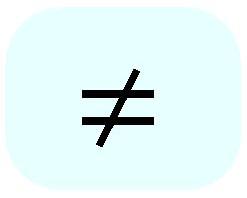I hadn’t see this site before, but Writing Forward had a nice post on creative writing that I thought I would share with Freelance-Zone readers today. It is advice from several writers, not just one, which is always interesting. While you are there, check out the rest of the site–it’s got some neat stuff on it. Personally, I enjoyed the areas on grammar and better writing. (BTW, this is one of the 2009 Writer’s Digest 101 Best Websites for Writers too!)
Tag Archives: grammar
Good Writers Don’t Always Get Paid
by Catherine L. Tully
I know a lot of people who are really good writers, but they aren’t all getting paid good money. I remember one writer that frequented a forum that I visited frequently. She was a better writer than I am, and she was frittering her time away writing for publications that paid five or ten dollars an article. She finally had to give up and return to the corporate world. The sad part is…if she just would have upped her markets a bit, she may have realized that she was underselling herself.
You see, good writers don’t always get paid what they are worth just because they have talent. They also have to have some drive and a willingness to take chances. Part of being a writer is taking risks. By stretching yourself, you will begin to learn your limitations…but more importantly…you will grow. Every time I got a gig at a magazine that was “out of my league” at the time, I had to work harder to make the piece shine. And I improved every time.
Continue reading Good Writers Don’t Always Get Paid
Great Grammar Resources

It doesn’t get any better than this. If you want to invest some time brushing up on your grammar, check out the resources given on this site: The University Of Chicago Writing Program. The sources are updated several times a year, so bookmark this baby and check back often.
How NOT To Abuse the Apostrophe
 A recent comment asking about abuse of the apostrophe left me with the desire to elucidate further. Here you go, folks–no more abusing those apostrophes. You could go blind. Ever wonder why it looks RIGHT to add an apostrophe after a verb or to write “Open Seven Day’s A Week”?
A recent comment asking about abuse of the apostrophe left me with the desire to elucidate further. Here you go, folks–no more abusing those apostrophes. You could go blind. Ever wonder why it looks RIGHT to add an apostrophe after a verb or to write “Open Seven Day’s A Week”?
Seeing that one fills me with the urge to go on a tri-state killing spree. The reason it looks “right”? You’re the victim of millions of bad menus, billboards, advertisements and other material. It looks WRONG now, you’ve seen it done badly so many times that right looks wrong. Welcome to Orwell land.
My handy memorization rule for apostrophes: Two basic uses–don’t bother any any others and you’ll never abuse them:
1. Used in a contraction. If you can’t remember how to properly render the apostrophe in a contraction, just spell it out instead. “It is” instead of “it’s” as in “It’s all about the Benjamins.”
2. Used to make a possessive. “Jeremy’s bicycle is a piece of crap.” “The creature’s claws got stuck in Jimmy’s scalp.”
A great mnemonic memory device for proper use of the apostrophe when it comes to “it is” or the possesive of “It” comes by way of Charles Bukowski, who wrote a book of poems called “It Catches My Heart In Its Hands”
Notice the apostrophe is omitted on the possessive of its. If my fuzzy memory serves me right, once upon a time they added an apostrophe AFTER the s, but that’s dropped out of the vernacular.
Grammar & Usage Help

I guess I’m on a tear when it comes to spelling, grammar and usage lately, but we can all use the help, eh? Here is yet another good resource for you. There are a bunch of helpful tips on this site. Have at it–and improve your writing!
5 Ways To Improve Your Writing

I think it is important to always be on the lookout for ways to improve your writing skills. Here are five things you can do that can help you polish your craft:
- Volunteer. Become a writing tutor somewhere and help others learn how to write well. It will help you brush up on your skills and remind you of the basics.
- Teach. If you have to break things down for others, it will make you think them through.
- Take a class. Look at your local community college and see if they have something interesting. Take a poetry class. Try a grammar course. Learn about language.
- Read a book. What is your weakest area? Find a book on it and get to work. You get as much out of writing as you put into it. Hone your skills.
- Add to your knowledge. Learn ten new vocabulary words a month. Save magazine articles you enjoyed and study them to figure out what the author did to draw you in.
You can do any of these–or all of them. The more you work at becoming a good writer, the better the chance you have of getting published and making a living doing what you love. Simply put–you can’t know too much!


